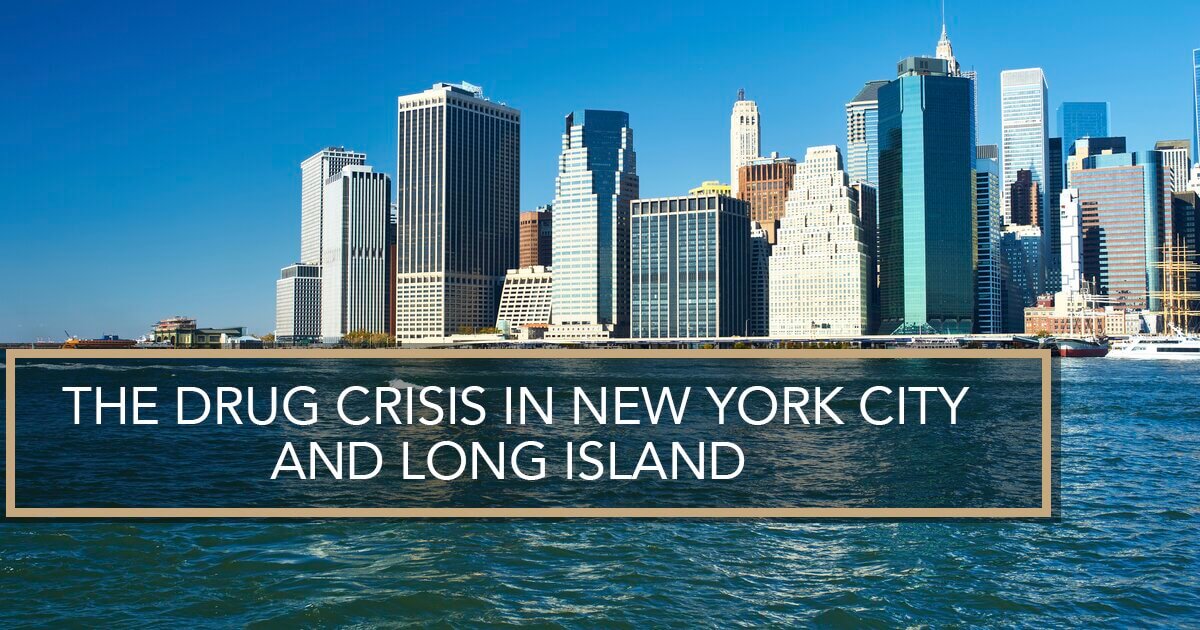Drug addiction has been a significant concern in the U.S. for decades. The opioid epidemic that began in the 1990s and 2000s led to a spike in drug overdose deaths. Although many people are trying to sound the alarm on the opioid epidemic in the United States, the problem has only worsened in recent years. Opioid overdoses and overdoses associated with other drugs have spiked since the COVID-19 pandemic. Read on for the facts on the impact of drug addiction on Long Island. New York City and the rest of the U.S.
Drug Overdose Deaths on the Rise
So how many drug overdose deaths in the U.S. have been recorded in recent years? From April 2020 to April 2021, the U.S. reported 100,306 deaths. That’s nearly a 30% increase over the overdose death count for the previous 12 months, which totaled 75,673. This marks the first time overdose deaths in the U.S. exceeded 100,000. The record overdose death rate means that more individuals died from drugs during that period than due to guns and car crashes combined. Since 2015, the number of drug overdose deaths has roughly doubled. Most individuals who die from drug overdoses are between 25 and 35, but teen overdose deaths and deaths among older adults are also rising.
Opioid Crisis In New York
New York City and Long Island’s drug overdose deaths reflect the nationwide trends. Long Island has seen a 30% rise in fatal drug overdoses since the beginning of the pandemic, and the total number of drug overdose deaths in New York City that occurred during the first two quarters of 2022 was 25% higher than the total recorded during the first two quarters of 2021. The spike in drug deaths has made headlines throughout the region. This year, two men were indicted for selling drugs that resulted in the death of four residents of Long Island, and one high school was forced to call paramedics to treat students who had overdosed three times in just ten days.
What Is Causing the Rise in Overdose Deaths?
So what is behind the dramatic increase in drug overdose deaths? There are a few factors:
- Rise of fentanyl: Experts say that many fatal drug overdoses are fentanyl deaths. Fentanyl is an opioid drug that is 100 times stronger than morphine. Because it is so powerful, fentanyl is highly addictive. It is also much easier to overdose on fentanyl than on other opioids. Individuals suffering from opioid addiction may not even know they’re taking fentanyl. The drug is also beginning to appear in other opioids and drugs like cocaine and marijuana. Those who take drugs laced with the potent opioid may suffer a fentanyl overdose when using a drug they have been able to use before safely.
- Loss of access to services: The pandemic meant that many available services for those suffering from opioid addiction shut down or modified their working hours. This made it difficult for some individuals to seek access to care. Overcrowded hospitals and overworked first responders may also have lacked the bandwidth to deliver much-needed care to those in the middle of an overdose health crisis.
- Growing mental health problems: The connection between addiction, the opioid epidemic, and mental health is clear. Many individuals use drugs to self-medicate and ease symptoms of mental illnesses like depression and anxiety. The World Health Organization (WHO) reports that the pandemic has led to a 25% global increase in these mental health concerns.
- Isolation: The pandemic caused many at-risk individuals to be isolated. Those with substance use disorders who continued to abuse drugs during the pandemic were more likely to do so alone, meaning no one was there to call for help when symptoms of an overdose emerged.
Addiction Treatment and the Opioid Crisis in New York
New York City is taking steps to address the opioid crisis and the increasing overdose death rate. The city launched a public awareness campaign to warn individuals who use drugs about the dangers of fentanyl and made testing supplies to check for fentanyl in drugs available throughout the region.
These measures may be the first step toward reducing fentanyl deaths, but work also needs to be done to increase access to addiction treatment. An evidence-based treatment program can help those with substance use disorders understand the causes of their addiction and develop strategies to avoid using in the future. If you or someone you know needs help, contact The Dunes for more information.








